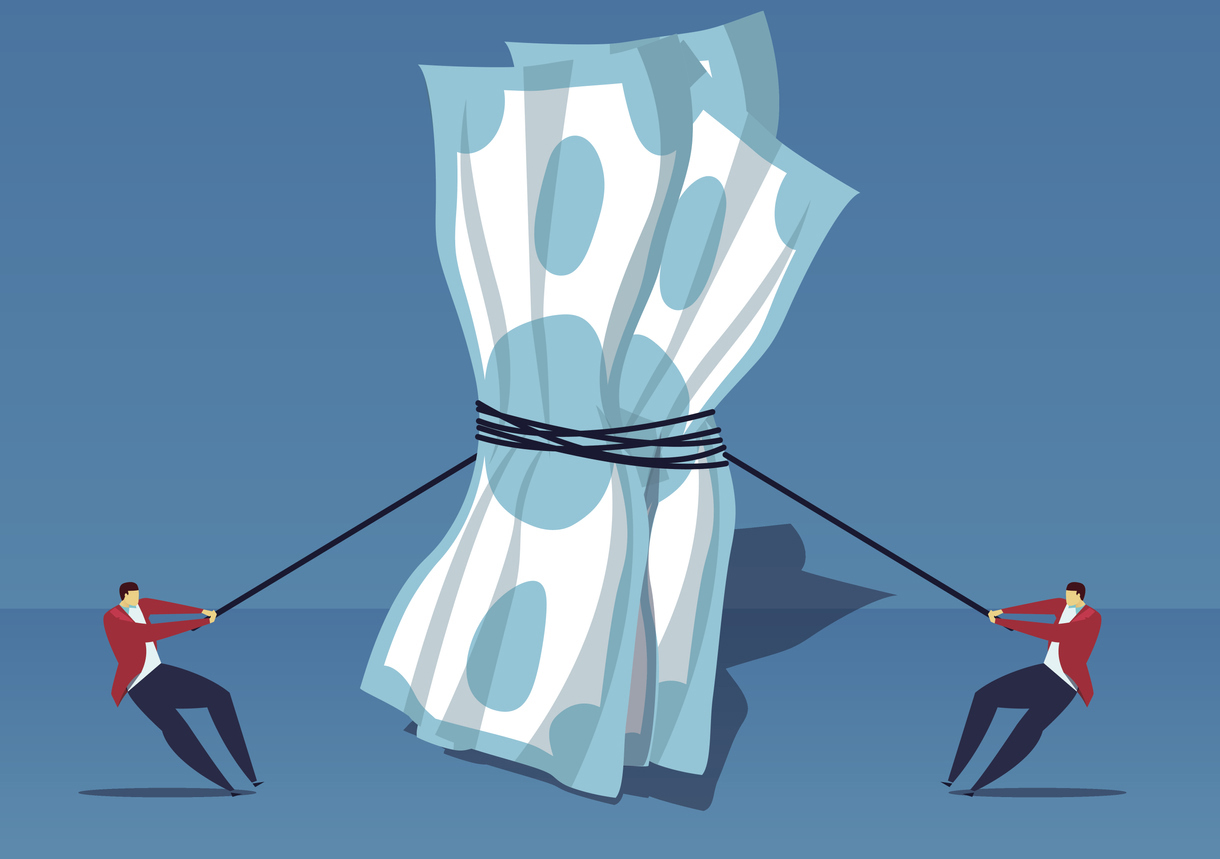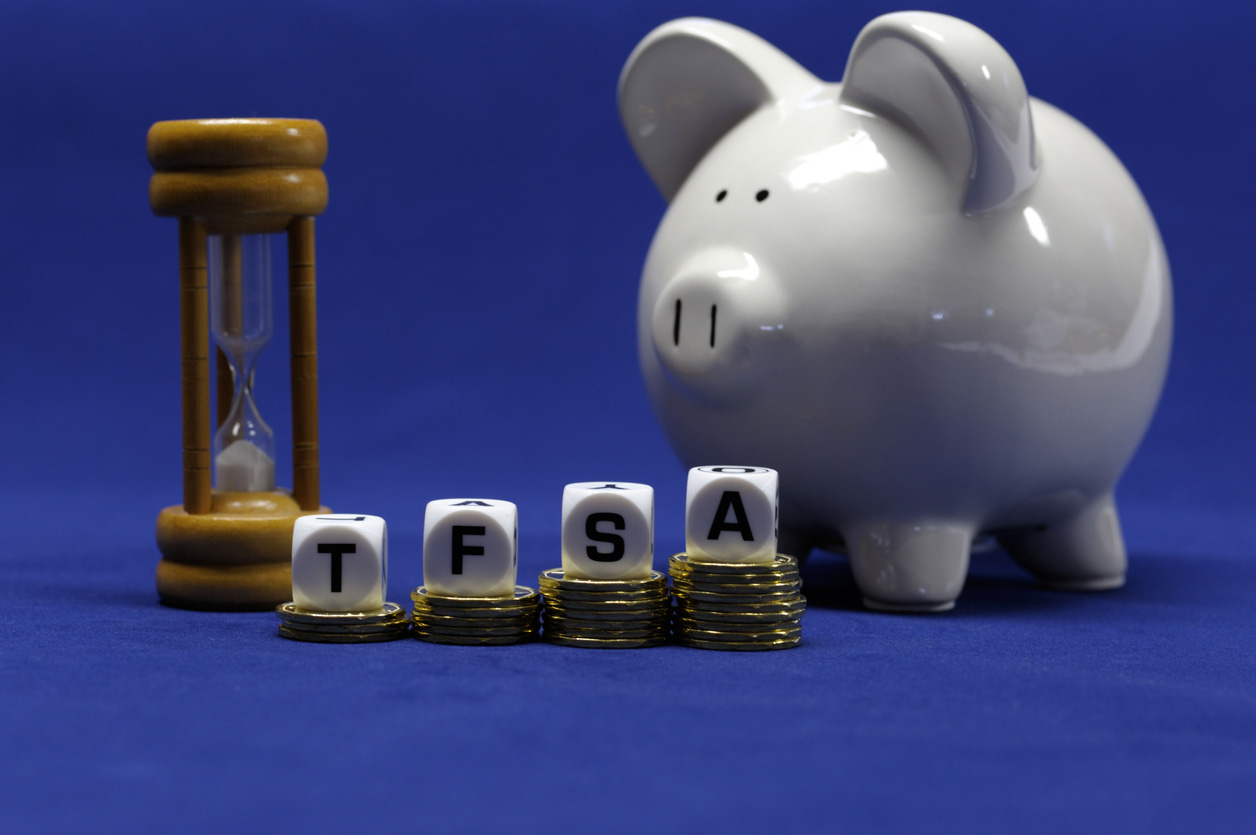Ciccone McKay Report: Federal Budget 2024
Budget 2024 outlines a series of proposed changes aimed at reshaping Canada’s fiscal landscape. The budget’s focus is on taxation, social benefits, housing, pension plans and business incentives. The changes, designed to enhance fairness, support, and economic growth, are intended to reflect the government’s commitment to addressing key challenges and ensuring greater opportunities for prosperity.
In the following, we provide an overview of the key proposals set forth in Budget 2024. We highlight the budget’s objectives and implications for individuals, families, businesses, and the broader Canadian economy.
Read MoreWhat to look for in a good long-term investment
Investors are always seeking good long-term investments. But just what makes a business a good investment in the long run?
One important thing to watch for is a company with a sustainable advantage over its competitors, also known as a sustainable moat. Coined by Warren Buffett, this term refers to a company with something unique or special that makes it hard for competitors to lure customers away.
How do high barriers to entry make a business sustainable?
Investors often fund companies with temporary moats. Temporary implies that their first-mover advantage in the industry will probably fade away sooner than later. Attractive businesses without a sustainable moat attract competition – and have their high margins competed away.
Interest rates and growth are inversely related: Does this help or hurt your diversified portfolio?
"Interest Rates and Growth: Are They Inversely Related?" is an insightful article by Vittorio Ciccone, an investment analyst at Louisbourg Investments Inc. It explores the complex relationship between interest rates, economic growth, and their impact on diversified investment portfolios. Vittorio highlights how central banks worldwide are raising interest rates to curb inflation, a move that has a significant ripple effect on the economy and asset prices of stocks and bonds.
The article further delves into the differential effects of interest rates and inflation on stocks and bonds. It underscores the importance of understanding these dynamics when constructing a well-diversified portfolio. With a promise of future discussions on the impact of interest rates on other investments like real estate and commodities, this article is a valuable resource for investors seeking to navigate the current economic climate.
Read MoreNew and expecting parents: An exciting time – and a time to adjust your financial plan
Expecting parents need to plan their finances early to be prepared for the financial responsibilities of a new baby. This blog provides a comprehensive guide to help expecting parents create a solid financial plan that covers expenses, insurance coverage, government benefits, future expenses, and emergency plans. By following these steps, parents can feel confident and prepared for the financial challenges of parenthood.
Read the full blog to learn more and get started on creating a financial plan for your growing family.
Read MoreRRSPs provide advantages – but they’re not for everyone
Let’s look at the pros – and the cons – of Registered Retirement Savings Plans (RRSPs). Created in 1957, RRSPs allow Canadian investors aged 71 and younger to put money aside and let it grow, tax-deferred. When investors reach retirement, they can begin withdrawing from the account for income.
Like many Canadians, you may decide to incorporate an RRSP into your financial portfolio during your working years. Eventually you will have to close this account and open a new type: the Registered Retirement Income Fund (RRIF). Usually, you’ll do this around retirement age, but you do have up until the end of the calendar year you turn 71. Note that an RRIF has minimum withdrawals percentages per year; these increase over time, based on your age.
Read MoreIt’s a new year – be sure to adjust your financial planning strategies
With the arrival of 2023, it is likely there are financial opportunities you can take advantage of. You may be a young investor, future homeowner, parent, empty nester approaching retirement, or already a retiree. Whatever category you fit into – perhaps more than one! – the New Year provides a chance for positive action.
The young investor
During your 20s, 30s and 40s, building wealth is likely your main objective. You work hard for your money. Make sure you are maximizing your growth potential by effectively and efficiently incorporating the appropriate accounts for your future plans.
Quantitative tightening: A need-to-know economic strategy
It’s all over the headlines: soaring energy prices and increased inflation – plus central banks’ raising rates in response. But something else is going on, too. Something less publicized, though just as important.
I refer to quantitative tightening, the contracting or reducing of a balance sheet. A central bank’s balance sheet is a crucial part of its influence over the market. The balance sheet acts as a driver in helping restore inflation to normal levels. Over the past few months, the Canadian central bank and (more importantly) the US Federal Reserve have accelerated the shrinking of their balance sheets.
Read MoreCiccone McKay Welcomes Gurkirat Walia
It’s our pleasure to introduce you to Gurkirat Walia, our new Executive Administrator at Ciccone McKay Financial Group. In joining our firm, Gurkirat holds a Masters of Science in Finance degree from Simon Fraser University and an undergraduate degree in Economics from University of Delhi.
Read MoreThe investing risk that really matters
As investors, we purchase stocks, bonds and alternatives in the hope of realizing the greatest dollar return. With stocks, the return largely comes with the capital gain on the asset price, plus any income from dividends. With bonds, the return depends on how much income the coupons generate, plus any appreciation on capital.
Read MoreInflation: what it is – and how to deal with it
The biggest risk over the coming year? Inflation, say three out of five U.S. investors. That’s according to Tony DeSpirito, a managing director at BlackRock, the world’s largest asset manager. While I don’t have a similar survey of Canadian investors, my friends, clients and colleagues tell me they feel the same. And no surprise. The cost of almost everything is up.
Read MoreFinancial resolutions for 2022 – to ensure your future well-being
It is with great pleasure that we announce the promotion of Salvatore “Tore” Corrado to the position of Financial Advisor with our firm. The promotion, which will affect our financial planning division, effective January 1st, 2022. As the President of Ciccone McKay Financial Group, I welcome you to join me in congratulating him.
Read MoreSalvatore "Tore" Corrado Promotion
It is with great pleasure that we announce the promotion of Salvatore “Tore” Corrado to the position of Financial Advisor with our firm. The promotion, which will affect our financial planning division, effective January 1st, 2022. As the President of Ciccone McKay Financial Group, I welcome you to join me in congratulating him.
Read MorePlanning your long-term giving may be the best gift of all to loved ones
With the holiday season in full swing, many of us are searching for the perfect gifts for family members. Estate planning isn’t generally something that enters our minds. Yet this may, in fact, be the right time for planning to give both now – and later.
Giving while living
Many people consider an inheritance to be something that is passed on after death. However, one estate planning strategy is inter vivos gifting, that is, giving away some of your assets while you are still alive. You might do this for several reasons...
Financial Planning Tips: An emergency account provides cash for those sudden, short-term needs
Lately it seems like everyone is eager to invest. The conversations tend to centre around a handful of companies or coins that started out cheap —then overnight became expensive. I get the allure of such investments, I really do. But to capitalize on them perfectly requires a lot of luck and timing, both of which are hard to predict.
Dazzled by headlines about the returns, people forget about the risk. For any level of return, there is always risk. And speculative investments are the most precarious of all! So, before you put your dollars into a generally speculative investment, do some proper planning: Establish a financial foundation.
Read MorePatience: The investment lesson we can learn from golf
I love summertime for one reason—the golf season. Each summer my dad and I play a match on the course. Every year is different. One year could be match play, playing with internal games like presses; other years, simply just seeing who scores best. But, however different, all matches have something on the line. When I was younger and learning how to drive, we would play for driving privileges for the week. As I got older, the stakes increased, money has been paid, and dinner bought— generally by me. Nevertheless, our competition is something I look forward to each year.
Some of my earliest memories are of Dad coming home with trophies and other golfing merchandise from local golf tournaments. He was good, really good (and still is). For me, every round was more frustrating than the last. And the angrier I got at my game; the more Dad refused to let up. He would keep winning, hole after hole, year after year.
Read MoreMarket Fears and Economic Signals
2021 is turning out to be a great year for equity investors. The market continues to hit new all-time highs after a strong recovery in 2020. However, inflation has picked up recently and is dampening investors’ enthusiasm.
As inflation expectations continue to gain momentum in the US and Canada, investors are afraid of runaway inflation which will cause the central banks to raise rates and shorten the strong recovery the economies are experiencing by raising rates. Currently, the Feds stance is that the rising inflation is transitory due to disconnect between supply (covid) and demand (reopening). The Fed has a mixed track record on inflation and on numerous occasions has back tracked their statements.
Read MoreAvoid the tax drag on your investments with TFSAs
When it comes to investing, how much of the return you can keep at the end of the year is important for long-term investment outcomes. While asset allocation and investment selection are key components that affect your long-term returns, minimizing the tax burden and other costs are a sure-fire way of increasing your overall gain.
The good news is, without needing to illicit the services of tax professionals, one of the simplest ways to ensure you are maximizing the tax efficiency of your overall financial portfolio is to incorporate Tax-Free Savings Accounts (TFSA).
8 common questions about TFSA’s
In 2009, the government of Canada introduced the Tax-Free Savings Account (TFSA). The idea was to give Canadians the best opportunity to reach their savings goals, by allowing them to set money aside in eligible investment vehicles and have their investments grow tax free.
A TFSA is now one of the most versatile financial planning tools. It is an effective instrument for short-term goals, such as emergency savings or a down payment, or long-term goals such as supplementing retirement income or other estate planning objectives.
Here are some questions to consider when determining if a TFSA is right for you...
When Things Change, Remember the 5-Circles
2020 was different; we were all scared and many of us faced financial uncertainties that we have not experienced before. However, if there is a silver lining from 2020, it is that we were forced to take a hard look at our personal financial plans. For many of us, it even resulted in building a financial plan for the first time. The reality is this is not the last time the world will experiences uncertainty. There will be another recession. There will be another massive market correction like we saw last year.
I believe that we have learned something from 2020 and hopefully have a newfound discipline when it comes to our own financial planning so that when the next time financial fear strikes, we will all be prepared both financially and emotionally.
Read MoreWhy are yields rising and what does it mean?
Volatility has once again returned to the markets as of late. The choppy sessions, ironically, were not because of negative news that we have grown accustomed but rather due to magnitude of positive news—quicker vaccine distribution, additional stimulus, and the eventual re-opening.
This leads to an increase in the yields of longer maturity government bonds, such as the 10-year US treasury. When these yields rise and the Fed keeps short term rates low, it results in the yield curve steeping. Usually this means the economy is trending in a positive direction. However, the sizable move in rates has ignited fear that the Fed will lose control of economy and the yield curve control.
Read MoreWhere did all my money go?
Time after time, many people look at their bank accounts and credit card statements and wonder how they do not have enough cash left over at the month-end. At Ciccone McKay, we have a saying: you must treat your household as if you are the personal CFO. It is crucial to take stock of your finances, specifically your cash flow, and understand where every dollar you earn is going. From there, you can better assess your actual financial situation and reach your financial objectives. This is important because the ability to free-up cash flow is critical, whether in normal times or during the extended volatility like we are currently experiencing.
Read MoreWho Said Life Insurance is Boring?
When I tell people what we do as a firm or more specifically, what I do as an insurance coordinator, people just get bored. That’s the reality of it! Oh, you handle life insurance? Sounds grim. People don’t like to think about their own mortality. While it’s kind of morbid, we all know death will come one day, and the later the better!
My role at Ciccone McKay is to ensure you get the best experience when you apply for life insurance. No, it will not happen in one day, and I agree that the process can get quite overwhelming. But the process is worth going through.
Stay the Course 2.0
A Message from Anthony Ciccone, President.
With the recent market movements, many people are being reminded of the feelings we all experienced when I wrote my original note in mid-March 2020. This feeling is uncomfortable; we are all feeling angst. However, this recent uncertainty is another reminder of why being well-prepared with a sound financial plan is essential.
As mentioned in my last note, perspective is crucial in times like these. As we continue along in our financial plans, we will experience more dramatic upswings and downswings that lead us to learning moments on certain things we should and should not do when investing.
Read MoreThe Biggest Mistake People Make when it comes to Mortgage Insurance
August 2020 saw an increase of 36.6% over 2019 in terms of sales, and a 55% increase in listings compared with one year ago in Metro Vancouver, likely a result of the slowing of transactions in the spring due to the pandemic.
If that wasn’t surprising enough, the September 2020 numbers are in, and sales grew again! It was the hottest September market on record, with sales 56.2% over September 2019. This is an increase of nearly 20% over August.
With activity now at record levels, we thought it would be timely to remind you of a common mistake people make when establishing a mortgage.
Read MoreBe Average
Napoleon Bonaparte was a French military leader and emperor who conquered much of Europe in the early 19th century; he had a quote to define military genius: “The man who can do the average thing when all those around him are going crazy.” I read this quote for the first time in Morgan Housel’s book The Psychology of Money; my mind immediately went to what has been transpiring in the stock market as of late; particularly the boom in recent retail trading.
Read MoreMaking sense of disability and critical illness insurance
Most people fail to understand they are putting themselves at far greater risk by not insuring themselves against disability and illness, in contrast to death. They somehow feel that the impact of their death (financially speaking) would be far worse than the financial impact of being incapacitated.
Read MoreEstate Planning in a Digital World: The Importance of Including your Digital Assets in your Estate Plan
The way society interacts on a daily basis has changed forever due to the COVID-19 pandemic. Gone are the days of meeting rooms filled with both staff and clients, or stores filled with people shoulder to shoulder waiting for the changing room. The coronavirus pandemic has altered nearly every part of our lives. But what about our estates?
Read MoreBuilding your Playbook: It’s more than just a Financial Plan
This week, I wanted to take a step back and write a bit more broadly about the work that we do at our firm. I’ve learned that many of my longtime friends, Analysts and even some clients don’t fully understand the scope of our work and how it has evolved over the last three decades.
The direction our firm has taken has really shifted to where we are now; a comprehensive financial planning firm. We have expanded our team over the years and have credentialed experts in every area who collaborate on customized, comprehensive, and holistic strategies that ensure everything happens the way you envision.
Read MoreIt's time to talk to your parents about your family finances
Depending on the dynamics of your family, discussing money with your parents can be a complicated subject to broach. Yet, whether you are a Millennial, Gen Xer or a Boomer, conversations about financial health and eventual transition of wealth will help answer key questions regardless of which stage your parents are in; pre-retirement, early retirement or beyond. Hopefully, they have done an excellent job in preparing for these life changes. While it is uncomfortable, and depending on your family, it’s possible that money conversations are almost a ‘taboo’ topic, it is essential to have these talks.
Read MoreHow to plan for an unforeseeable future (and no, you don’t need a crystal ball)
If I can find a silver lining in COVID-19, it’s that it has compelled us to press pause in our lives, allowing us to reflect on matters that our pre-COVID lives didn’t afford us because we were too busy.
I hope for many of you, you’ve had a chance to reflect on what truly matters most to you. I’ve found in my own life that this reflection happened naturally. The pandemic and the anxieties it has brought up, both in terms of our family’s health and our finances, has brought into sharper focus my priorities: providing a secure and comfortable lifestyle for my family.
Read MoreGoal-based investing: How comprehensive planning before investing ensures you reach the future you want
With the uncertainty the world is currently experiencing, it is more important than ever to understand why working with an advisor to develop a financial plan that incorporates goal-based investing is so essential to success in achieving what matters most to you. This articles describes the two biggest mistakes that investors make, and why the goal-based investing strategy is the solution.
Read MoreMarket Update: Stay Calm, Stay the Course
A message from Anthony Ciccone, President
Many of you are feeling concerned about the unprecedented events we are experiencing, and specifically, the severe impact on the financial markets. Three months ago, no one knew what COVID-19 was; now it is impacting everyone. This is uncomfortable; we are all feeling the angst. The ups and downs of the stock market over the last few months are a great reminder as to why being well-prepared is essential.
Read MoreTaking Advantage of Dollar Cost Averaging in a Market Downturn
With the situation occurring in the global economy, many of our clients have been reaching out to us, indicating they feel that now is a great opportunity to invest assets that they otherwise had sitting on the sideline, perhaps stored away in savings accounts, GICs, or Term Deposits. Although we agree that the recent decline in the markets provides certain investors great opportunity, sound strategy must guide investor actions in times such as this.
Read MoreNo, the sky isn’t falling. Let us remind you of a few things.
Financial markets fell further this morning, pushing major US, Canadian and Global indexes closer to bear-market territory as a price war for oil began between the Organization of Petroleum Exporting Countries (OPEC) and Russia and as the fallout from the coronavirus outbreak is reaching potentially pandemic proportions.
Read MoreLogic and emotion: Determine your investment risk by understanding both your ability and willingness
Ever opened an investment account? Part of the procedure was most likely completing a risk-tolerance questionnaire. You answered a few simple questions, along with specifying your time horizon. Then, suddenly – you were perhaps categorized as an aggressive investor. Typically, this means an investor for whom an equity-heavy portfolio is appropriate.
Read MoreBeware the traps of emotional investing: Stay successful by staying big-picture
As an investor, you probably remember the how-to rules when you first started investing. Buy low, sell high. Diversify. Invest for retirement. Save before you spend. And you’ve adhered to these rules completely. Or…have you? The problem we often see with clients is an all-too-human one: their tendency to rely on emotions – and make unsound financial decisions as a result.
Read More
 Steven Bicego Advisor, Client Relationship Manager - B.Comm
Steven Bicego Advisor, Client Relationship Manager - B.Comm 




.png)








.png)






























